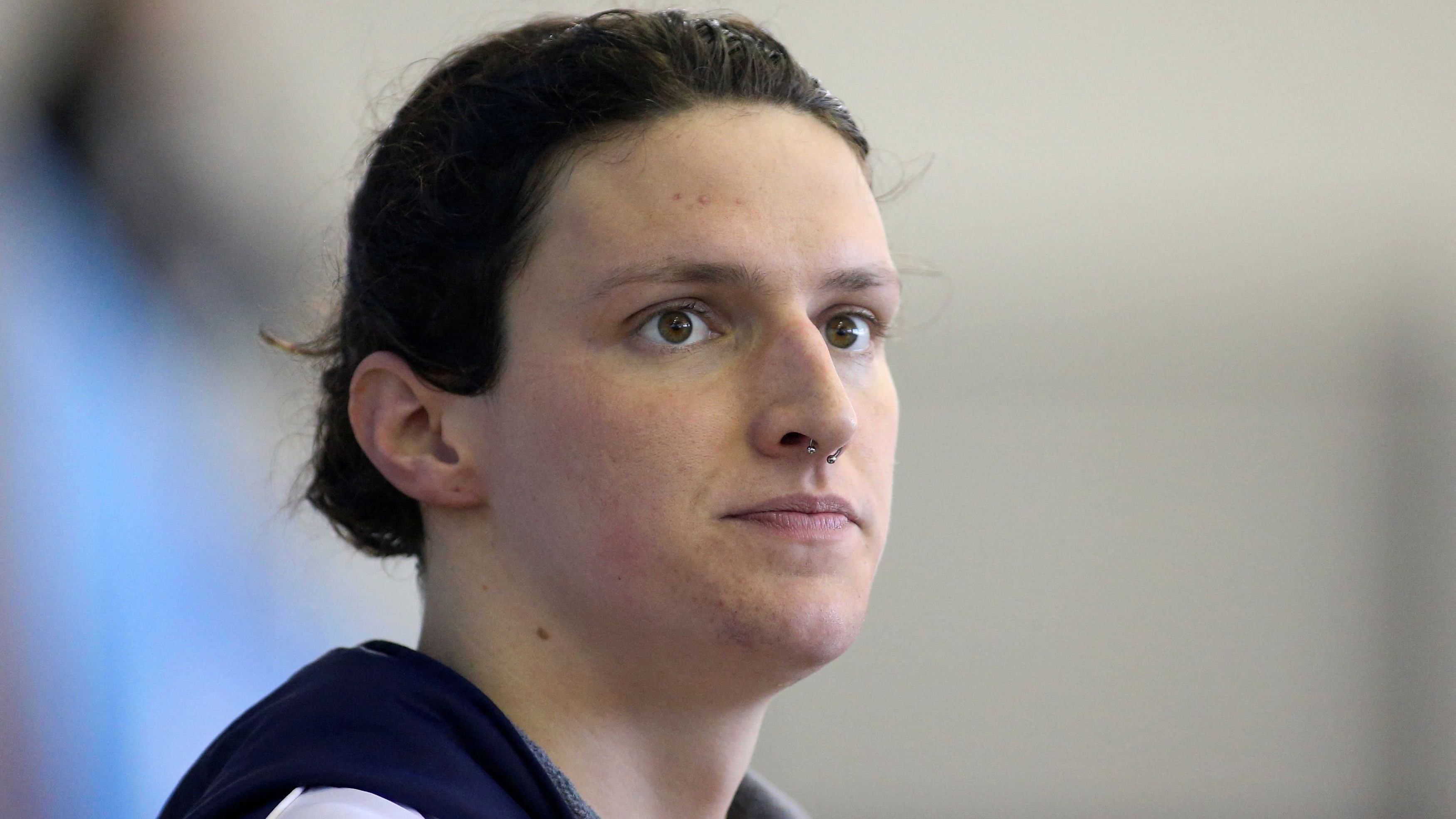
Lia Thomas on the pool deck at NCCA Swimming and Diving Championships at Georgia Tech.
Credit: File Photo/USA Today
Bengaluru: In a landmark decision on June 12, the Court of Arbitration for Sport (CAS) quashed transgender athlete Lia Thomas’ law suit case against the World Aquatics (WA) which had banned transgender women from competing in women's elite races. DH's Sidney Kiran breaks down the issue.
Who is Lia Thomas, the person behind WA framing the new gender policy in June 2022?
Born in 1999, Thomas was assigned male at birth. Thomas attended the University of Pennsylvania and in fact swam on the men’s team from the 2017-18 to 2019-20 seasons. However, towards the end of high school she started questioning her gender identity before coming out as transgender to her family during the summer of 2018. In May 2019 she started using hormone replacement therapy to transition into a woman and by 2021, Thomas met the National Collegiate Athletics Association (NCAA) hormone therapy requirements to swim on Pennsylvania’s women’s team and did so for the 2020-21 and 2021-22 seasons.
When and why did WA frame the new gender policy?
Silent spectators at the start, what caught WA’s attention was the immeasurable advantage Thomas, despite undergoing treatment to suppress her testosterone levels, possessed over athletes who underwent puberty as a woman. During the NCAA Division I National Championship in March 2022, a 22-year-old Thomas blitzed to gold in the women’s 500-yard freestyle with a time of 4:33.24, 1.75 seconds ahead of Olympic silver medallist Emma Weyant. In another race, Thomas apparently finished nearly 40 seconds ahead of her closest competitor. The natural superiority Thomas exhibited because of testosterone, open letters by women athletes and continuous debates on whether it was fair to allow biological men to compete in women events despite undergoing gender change forced WA to rewrite the rules. So in June 2022, WA came up with the new gender policy that prohibited athletes like Thomas who underwent complete puberty as male from competing in ‘elite’ women events.
So did WA end up barring transgender athletes like Thomas from competing altogether?
No. In order to protect women’s sport but at the same time to ensure there’s equal opportunities for athletes of all genders, WA introduced an ‘Open’ category apart from men and women for athletes who were not assigned female at birth. The reason why ‘female’ is stressed is because it’s scientifically proven the physical advantages testosterone has over the female hormones — estrogen and progesterone. The Open category debuted at the 2023 Swimming World Cup in Berlin but was scrapped right then and there after none signed up to enter the field.
What prompted Thomas to approach CAS?
Thomas is against WA ruling, saying such blanket bans are discriminatory on people like her who face gender identity issues. She believes she’s a woman and underwent necessary hormone replacement therapies — sometimes extremely painful — to change herself into a woman. She believes her testosterone — the male hormone that gives men the natural muscle mass and strength over females — are suppressed to the levels women have and she has no advantage. But WA was tough with its stance which forced Thomas to approach CAS although she can still compete in Open category if she desires.
Apart from WA, which other federations bar transgender women from competing in women events?
World Athletics and UCI (cycling), which along with swimming are three of the most high-profile Olympic sports, now bar anyone who has been through any part of male puberty from competing in the female category. Many believe this is the right way and it protects biologically born female athletes. There has been a growing chorus for other federations to also embrace this policy despite criticism from human rights groups who find it highly discriminatory.